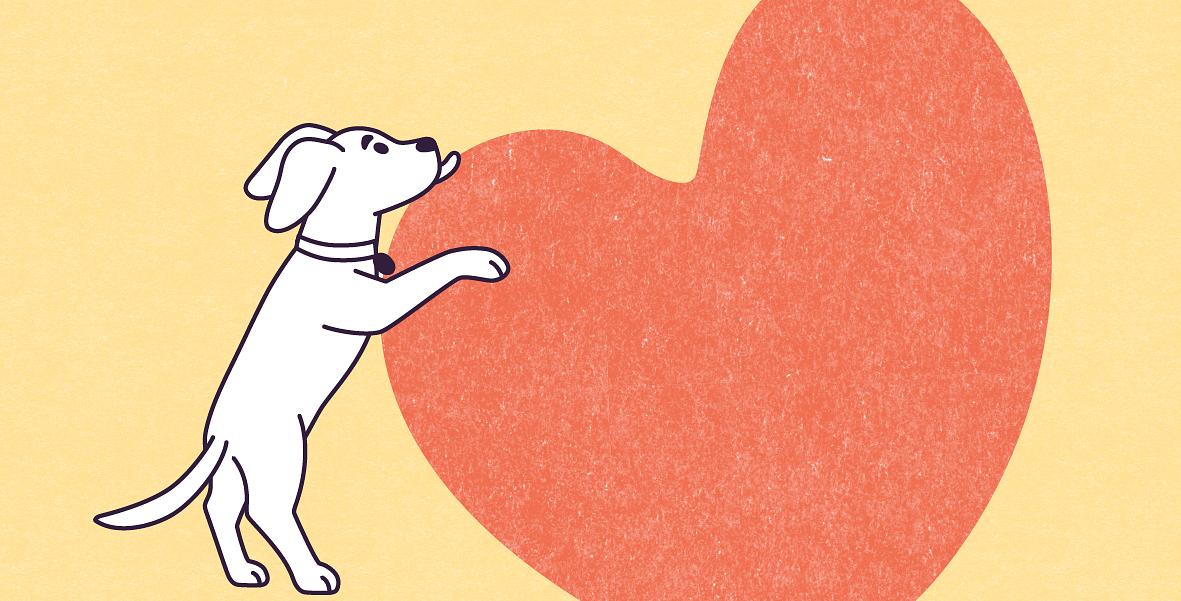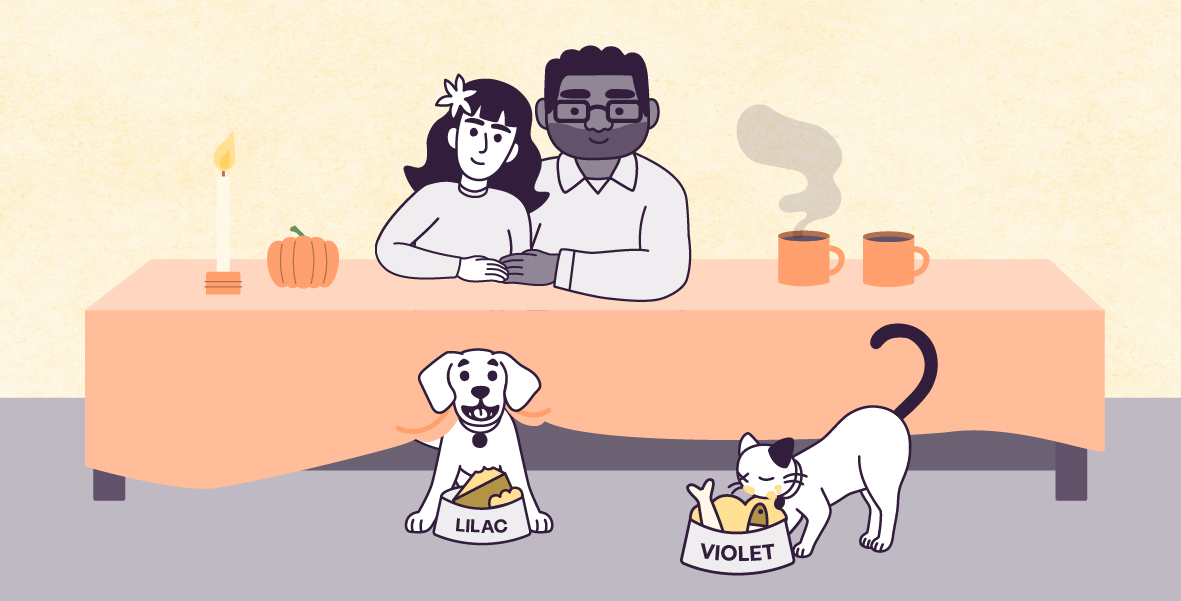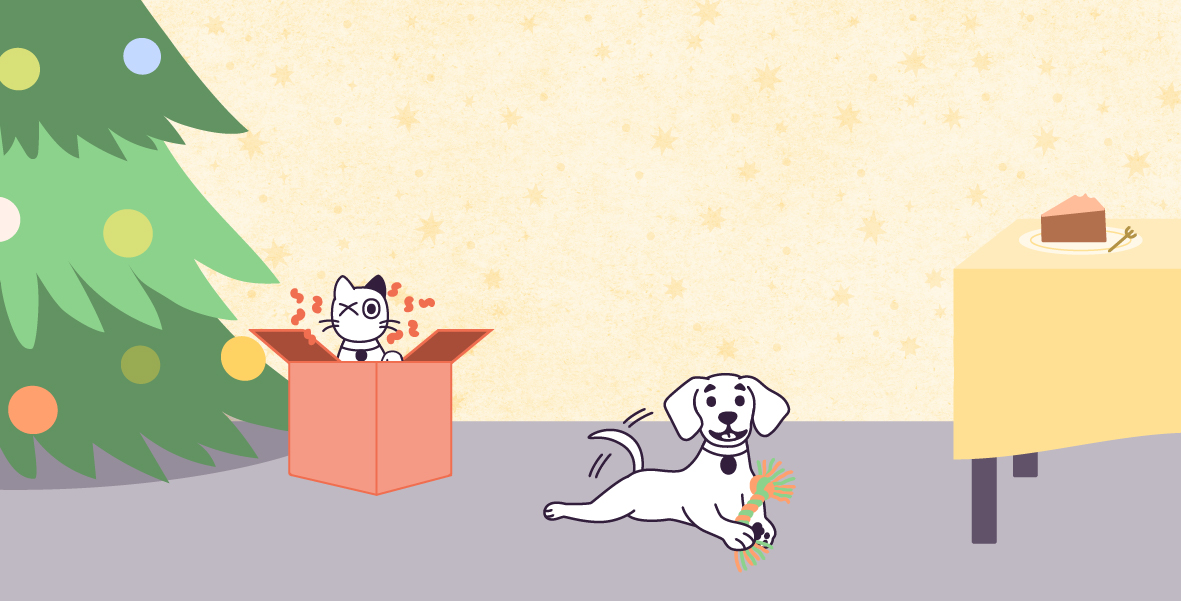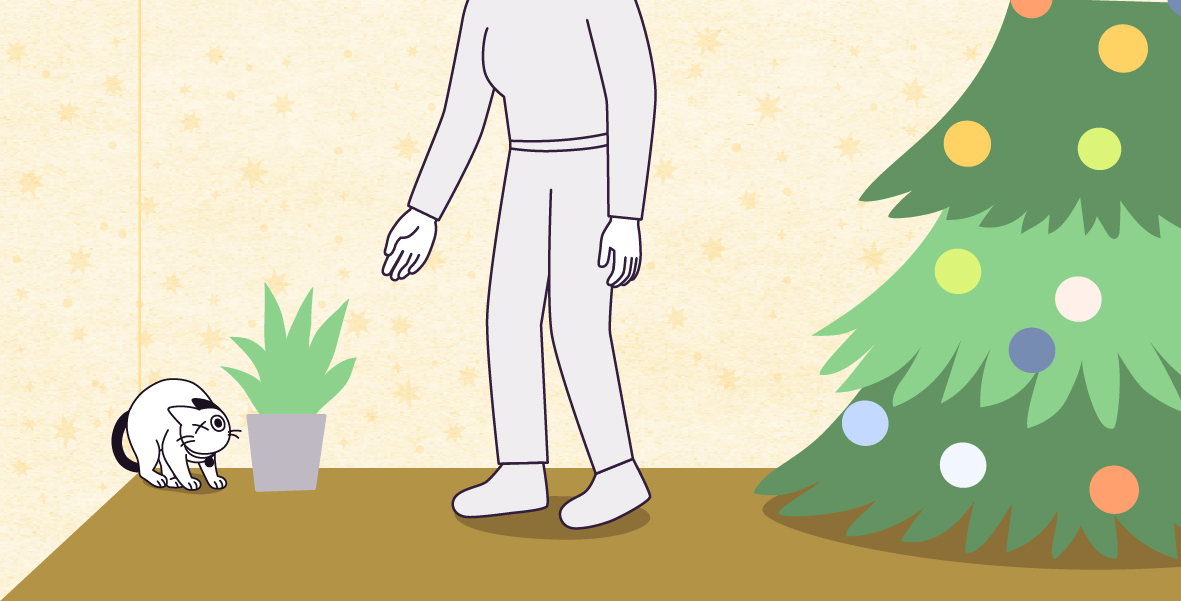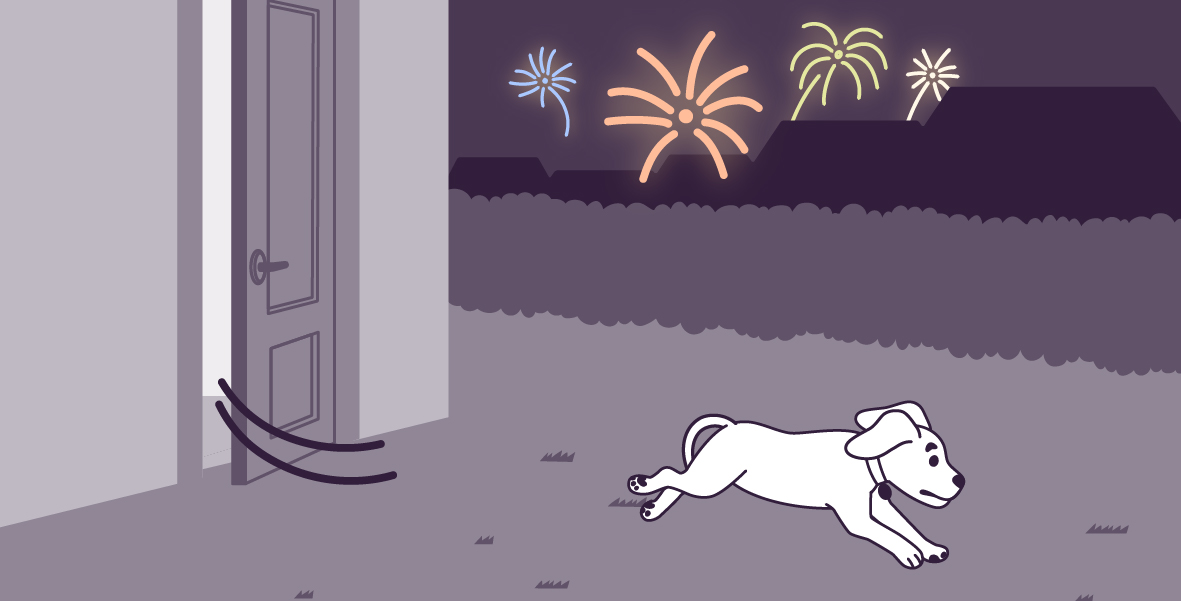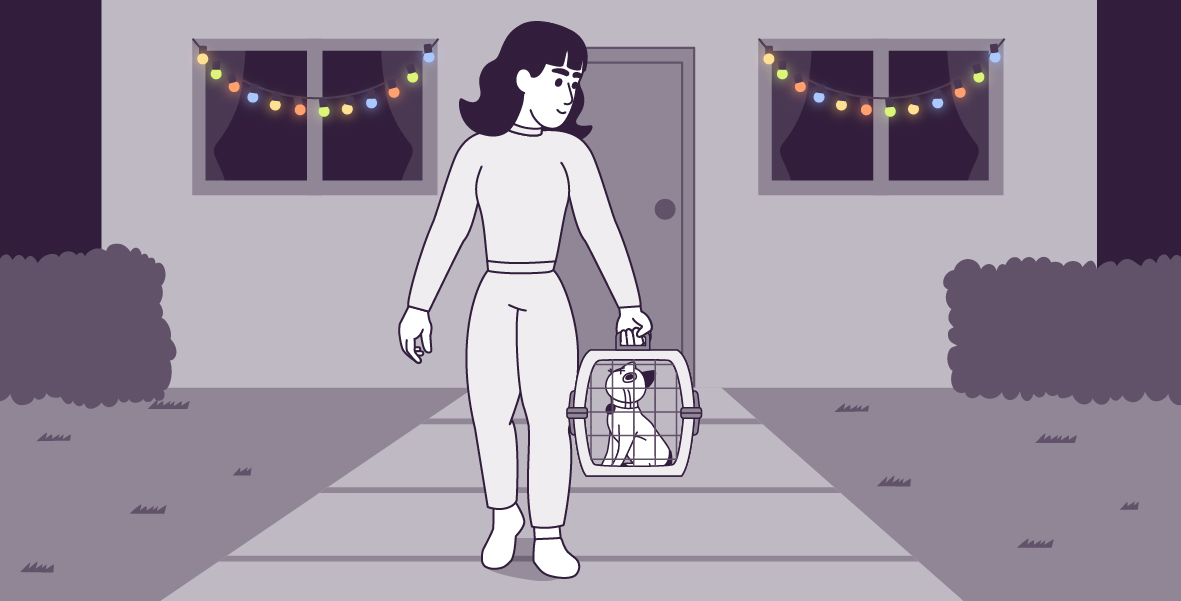
The holiday season is full of fun and family memories. But it can also be a time of trouble for pets! We’ve compiled a list of some holiday hazards for your pet. Have a safe home for everyone and plan for emergencies. Have the nearest 24/7 emergency vet clinic and other important contacts handy, with a Pet Emergency Contact Form and a Pet First Aid Kit ready in case of an emergency.
Check out our blog post Who do I call in case of a pet emergency? and What do I need in my pet’s first aid kit?.
Toxic Food & Plants
Just because your pet is part of your family and enjoys the festivities with you, doesn't mean they should eat the same food you do! Some people's food is toxic for pets, and you should be very careful not to leave your pet unsupervised with food accessible. They may pose a choking, poisoning, laceration, or pathogen risk. Be aware that chewing on anything hard can result in broken teeth. Avoid holiday plants that your pet may chew or eat!
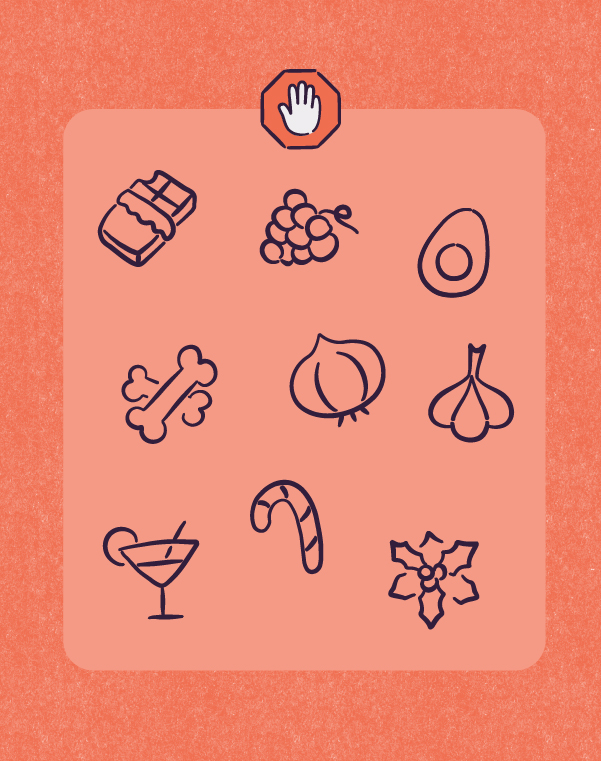
Keep your pet away from:
- Alcoholic drinks;
- Bones (raw and cooked)
- Sugar (chocolate, xylitol)
- Macadamia nuts, grapes, or raisins
- Onions and garlic
- Avocado and high-fat foods
- Holiday plants: ivy, holly, lilies, mistletoe, amaryllis, balsam, pine, cedar, and poinsettias).
Keep trash away from explorer pets who may try to eat some of the leftovers.
If you want to give your pet a special treat at this time of the year, you can make homemade treats with pet-friendly ingredients, as long as they are simple and given in moderation, such as:
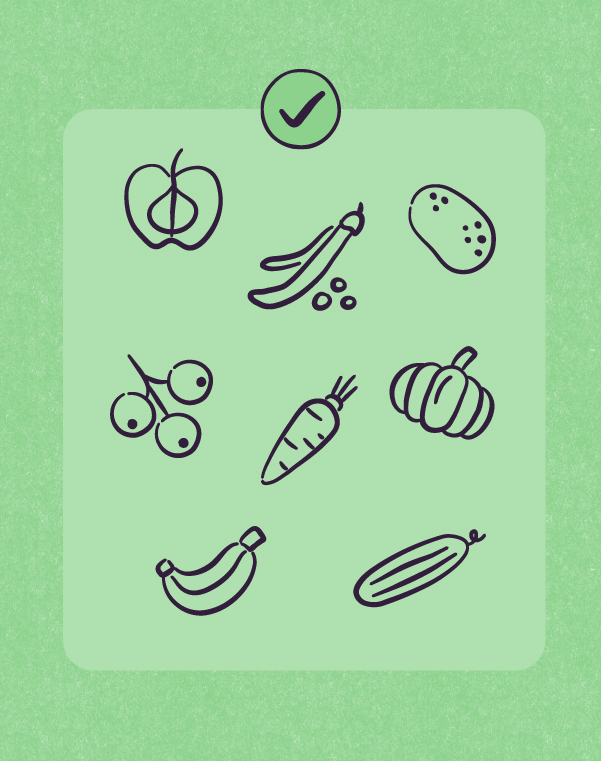
- Carrots
- Apples (without seeds)
- Cooked pumpkin
- Blueberries
- Bananas
- Cucumbers
- Green beans
- Boiled sweet potatoes or baked potatoes.
Decorations
The Christmas tree is a must-have for all Christmas lovers. Be careful if your pet has access to the Christmas tree; most pets will love to play with it. The tree should be safe from falling over your pet if they try to climb or bump into it. Ornaments should be secure to the tree to prevent them from falling, and you should choose items that your pet can't swallow or break and cut themselves with. Protect Christmas light cords from chewing.
Don't leave candles unattended where your pet can accidentally knock them over. Be aware of other home decorations around the house that may be of interest to your pet and pose a danger to them.
Presents
Store food gifts out of your pet’s reach. Even if they’re wrapped, your pet may sniff them and eat through the packaging when left alone.
There are always ribbons and bows and wrapping paper around gifts that your pet may enjoy playing with. Supervise playtime and throw them away afterward so they don't become choking hazards or cause intestinal health issues.
Look for children's toys scattered around the house, especially those with small parts or batteries that your pet could chew or swallow.
Remember that pets are part of the family and should be adopted responsibly. If you want to surprise your family by adopting one in the holiday season, prepare for a responsible adoption and only offer a pet to another family with their knowledge and preparation. Keep in mind that the holiday season may not be the best time to bring a new family member into your home.
Guests
Family and friends are always welcome, but your pet may not enjoy their presence as much as you do, especially if you are hosting the holiday festivities and there is a lot of noise, movement, and people in their space!
Prepare your pet for the holidays. Train them to be alone in the house or to receive guests in their space. Even social pets can get nervous in a party environment. Get help from a professional pet trainer if this is a challenge for your family. If your pet is fearful, insecure, or excitable, take extra precautions to avoid causing them a stressful experience. You can provide a safe space (a separate room or a hiding place in the house) where they can go or stay away from all the excitement of the gathering. You can provide toys for them to play with and keep them entertained, or even consider talking to your vet about calming medication if your pet shows higher levels of anxiety in these situations.
Always inform your guests that you have pets and that they are part of your family and discuss your house rules with them, such as:
- Don't give food to the pets;
- Don't leave windows or doors open for pets to run away;
- Don't approach the pet if they are uncomfortable;
- Don't follow or touch the pets when they hide or run away;
- Always be respectful and approach with caution.
If they are unfamiliar with your pets, explain to your family and friends what their personalities are, what to expect, and how to interact with them. If your guests have pets and want to bring them into your home, consider the pet's personality and behavior before introducing them. If they can get along, introduce them in a peaceful environment before the holidays and observe their interaction.
When there are many people around, it is easy to get distracted. Making sure your pet is safe in the house and that everyone is respectful can be challenging and can add more stress to your day. As much as you want your pet to be a part of your family gatherings, most pets do not appreciate this environment. Be aware of their body language and give them a safe space where they can be comfortable while you can have a worry-free, fun holiday!
Fireworks
Celebrations can be overwhelming, especially for your pet. They are unaware of what is happening and can easily become frightened. If you know that fireworks or other sudden loud noises may frighten your pet, take precautions to prevent them from escaping and to minimize their stress as much as possible.
- Keep your pet indoors, and make sure they can't open the doors when scared. Some pets are so terrified that they will find a way to run away even when you don't think they can;
- Close all windows and curtains and use another sound source to mask the loud sounds, such as white noise, turning on the TV or radio, or playing soothing music. See what works best for your pet;
- Give them a safe place where they can go and hide to feel safe;
- Be there to comfort your pet when they need it;
- Use a Tellington TTouch body wrap or a Thundershirt ;
- Distract them with toys and treats;
- If your pet becomes too nervous, consider talking to your veterinarian to recommend calming medication;
- Prepare your pet for the sound of fireworks by desensitizing them before they experience it. This is a training process, and you may find a professional trainer helpful.
Make sure your pet has a microchip ID, a collar tag, and up-to-date contact information. If they get lost, it will be easier to get them back home. If, unfortunately, your pet gets lost, check out our blog post “What do I do if my pet gets lost?” and our FREE “Lost Pet Poster Template.”
Travel
If you are traveling this holiday season, consider what is the best option for your pet. If your pet is comfortable traveling and you have a safe place to go, taking your pet with you may be an option. However, if they get stressed about their carrier, traveling, and unfamiliar environments and people, staying home is the best option.
If you decide to leave your pet at home, find a pet sitter or talk to your family and friends to give them time to learn your pet's routine and become familiar with them. If you don't know or trust someone to care for your pet at your home, check local pet hotels in your area to see if there are any that meet your family’s needs.
If you decide to travel with your pet, check the travel requirements for your destination. Talk to your veterinarian for a health certificate and advice on your pet's ability to travel. If leaving your pet at a pet hotel or with a pet sitter at their home is the best option, make sure your pet is up-to-date on vaccinations.
That’s it! With some precautions, you and your pet can enjoy the festivities. We wish you a happy holiday!
Stay tuned for our next blog post. Thank you for reading!
4EveryPet can only exist thanks to your support. Please share this blog post or buy us a Ko-fi to help keep our content available 4everyone!
The 4EveryPet team shared their expertise in a Rent article. Check out the featured article: The Comprehensive Guide: Tips and Tricks to Make a Pet-Friendly Home | Rent.
